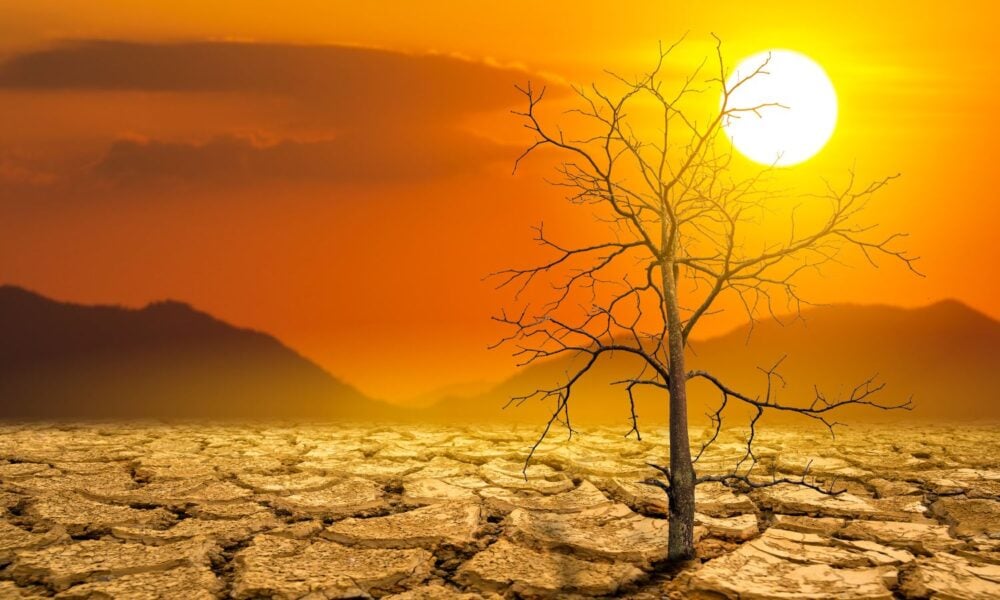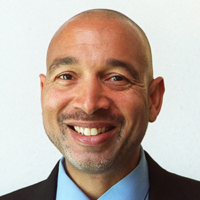Can a heat wave ever melt climate denial in Florida? It certainly hasn’t yet. Governor Ron DeSantis’s recent response is a scorched-earth campaign to wipe out climate science from state policy. On the very day in May that Key West registered a record 115-degree heat index, DeSantis signed a bill that:
- Eliminates requirements for businesses to consider climate friendly products and practices in lodging and vehicle fuel efficiency;
- Prohibits offshore wind energy;
- Prohibits localities and homeowners associations from restricting or banning fuel sources and appliances, most notably gas;
- Eliminates requirements for the state Department of Agriculture and Consumer Services to establish goals and strategies to increase renewable energy and include renewable energy development and reduction of fossil fuels in long-range forecasts of energy supply and demand;
- Repeals grant programs and incentives for individuals, businesses, school districts and local governments to diversify energy supplies to mitigate the effects of climate change;
Waving his magical-thinking wand to make climate change disappear from virtually every aspect of policymaking, DeSantis bloviated that he is “rejecting the agenda of radical green zealots.” Not even two weeks later, Florida was hit with a Memorial Day weekend of yet more heat records in Miami and Fort Lauderdale and West Palm Beach. Tampa hit a daily record of 97 degrees on May 29.
That caused a television meteorologist at NBC’s Miami affiliate to all but say that Florida is under a state of climate emergency, inflamed by political insanity. Meteorologist Steve MacLaughlin said on social media that “Florida is on fire, underwater and unaffordable.” He told viewers in a video that the state was rolling back important climate change legislation and language despite “record heat, record flooding, record rain, record insurance rates and the corals are dying all around the state.”
MacLaughlin did not stop there. He made a public plea for viewers to register their concern for climate change at the ballot box. “Please keep in mind the most powerful climate change solution is the one you already have in the palm of your hands — the right to vote,” MacLaughlin said. “And we will never tell you who to vote for, but we will tell you this: We implore you to please do your research and know that there are candidates that believe in climate change and that there are solutions, and that there are candidates that don’t.”
MacLaughlin’s stance was especially notable given the harassment many television weather forecasters have experienced for following the science to tie climate change to increasingly severe weather. The harassment was symbolized by last year’s resignation by Chris Gloninger, an award-winning television meteorologist in Des Moines, Iowa after he received threatening emails.
“Danger Season” realities
Florida is hardly the only state in a state of denial as the United States enters what the Union of Concerned Scientists describes as “Danger Season”–the period from late spring through early fall where the nation is at particular risk of a host of devastating rains that can trigger floods, hurricanes and storms that can deliver baseball-sized hail, and extreme heat and drought that can kill people and ignite wildfires.
As heat saturated the Sunshine State, a siege of severe storms killed at least dozen people on Memorial Day weekend across Texas, Oklahoma, Arkansas, Missouri, Kentucky, North Carolina, Virginia and Alabama. Hundreds of thousands of people in Texas lost power, many streets in Houston were under water and several people were killed by blown-down trees and limbs that fell on houses, tents, trailers and vehicles. A few days later, Denver recorded the largest hailstones in 35 years.
In Texas, Governor Greg Abbott has dutifully issued disaster declarations for many counties that have been battered by severe weather since late April. On May 15, as DeSantis deleted climate change from state policy while Florida broke heat records, Abbott wrote President Biden for a White House disaster declaration. Abbott said the incidents were “of such severity and magnitude that an effective response is beyond the capabilities of the state and affected local governments, and that supplementary federal assistance is necessary to save lives and to protect property, public health, and safety, or to lessen or avert the threat of a disaster.”
Deadly state policies
When it comes to acting on climate change to avert the threat of disasters, though, Abbott is much like DeSantis. He has vetoed legislation for energy efficiency in new construction, signed laws banning localities from banning gas in new construction and issued an executive order that directs “every state agency” to fight federal actions to reduce dependence on oil and gas.
Most cruelly, Abbott signed a bill last year that bars cities and counties from mandating heat protection rules stronger than the state’s, that might allow for things such as more frequent water breaks. This year, DeSantis signed a similar bill. This is despite the fact that Texas has set heat death records three years in a row, and leads the nation in heat-related construction worker deaths. Both Texas and Florida were in the top five states for heat deaths last year. A 2021 analysis by the Union of Concerned Scientists found that by 2065, the outdoor exposure to hazardous heat could quadruple.
Last week, the Associated Press published an analysis of data from the Centers for Disease Control and Prevention showing that last year was the deadliest for heat across the nation in 45 years of record keeping, with heat listed as a factor on more than 2,300 death certificates. It was a sorry exclamation point on the National Oceanic and Atmospheric Administration’s assessment that 2023 was the Earth’s warmest year on record.
And even that number of US deaths may be a vast understatement given that heat illnesses are often not mentioned on death certificates. Texas A&M climate scientists Andrew Dessler and Jangho Lee told the AP that last year’s real national annual heat death toll may be more like 11,000–and that it could get much worse. “We’re going to look back at 2023 and say, man, that was cool,” Dessler said. “The problem with climate change is, if it hasn’t pushed you over the edge yet, just wait.”
The question is: when will the toll of heat and severe weather push DeSantis, Abbott and like-minded politicians toward policies to cool the planet? Last year, the nation suffered a record 28 billion-dollar weather disasters, hugely impacting Midwestern and Southern states thus far resistant to climate-friendly policies.
Quietly reaping benefits
There are occasional nods to reality as DeSantis last month signed into law a measure requiring homeowners to disclose a property’s flood history. But for the most part, conservative states are engaged in a selfish game of quietly reaping the benefits of renewable energy while doing the bidding of the fossil fuel industry, to retard progress on the national level.
For instance, the top four states for wind generation growth over the last decade, according to a report in April by Climate Central, are Texas, Oklahoma, Iowa and Kansas. The top states for solar power growth since 2014 are Texas and Florida. Two of the top three states for adding clean energy jobs in 2022 were Texas and West Virginia, according to the US Department of Energy.
Nonetheless, all of those states are among the more than two dozen suing the Environmental Protection Agency over the Biden administration’s rules that cut carbon pollution at the national level from existing coal-fired power plants and new natural gas plants. They all are also among the two dozen states that currently have laws on the books prohibiting localities from banning gas in new buildings, despite the wealth of science showing that the methane associated with gas production is a potent contributor to global warming. Not surprisingly, many of these same states also rank in the bottom half of the State Energy Efficiency Scorecard published by the American Council for an Energy-Efficient Economy.
Yet, when climate-related disaster strikes, these same states beg for federal disaster aid. Only then do they become, to borrow from DeSantis, “radical green zealots.” Except that the only green they are seeking is federal cash.
While the government should indeed deliver aid to families and businesses that suffer destruction, it would be a lot better if Abbott and others returned the favor by not trying to destroy federal efforts to stem the forces behind the damage. Abbot has boasted that “Texas is not going to stand idly by and watch the Biden administration kill jobs.” It will be more momentous when he and his ilk are finally humbled enough by storms and heat to say they will no longer stand idly by to watch climate change kill people.

